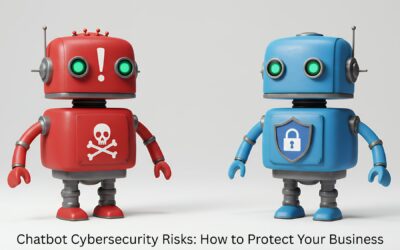Most of us spend hours connected through technology devices each day and while that brings a wealth of opportunities, it also increases our exposure to bad actors. There have always been scams and malicious attempts to attack or extort us for financial gain or reputational harm, but as technology advances, bad actors get more sophisticated and have almost unlimited opportunities to create chaos. You need to know how to be cyber-ready.
Cyber attacks look like accessing your personal or business computers, devices, gaming systems, and other internet- and Bluetooth-connected devices, damaging your financial security (including identity theft), blocking your access or deleting your personal information and accounts, complicating your employment or business services, or impacting transportation and the power grid. Everyone can contribute to avoiding cyber risk by being aware of and taking steps in advance including:
- Limit the personal information you share online. Review privacy settings and do not use location features.
- Keep software applications and operating systems up-to-date. Make sure you enable automatic app and device updates which frequently include security patches in response to changing attack methods.
- Create strong passwords and use a password manager and multi-factor authentication.
- Watch out for request that asks you to do something right away, offers something that sounds too good to be true, or needs your personal information. Review URLs BEFORE you click to try to verify the validity of the link by checking for misleading typos, unexpected domains, etc.
- Protect your home and/or business using a secure Internet connection and wi-fi network, and change the passwords regularly.
- Do not share PINs or passwords. Use devices that use biometric scans when available (fingerprint scanner or facial recognition).
- Check your account statements and credit reports regularly for suspicious activity.
- Be cautious of sharing personal financial or medical information. Only use secure sites (https://). Do not use sites with invalid certificates. Use a VPN that creates a more secure connection.
- Use updated antivirus and anti-malware solutions and firewalls to block threats.
- Back up your files regularly in an encrypted file or encrypted file storage device.
- Do not click on links in texts or emails from people you don’t know.
- Remember that the government will not call, text, or contact you via social media about owing or collecting money.
- Thoroughly research any work-from-home opportunities, debt-consolidation offers, and student loan repayment plans.
Just like more traditional disaster preparedness reviews like tornado or fire drills, cyber security awareness should be at least an annual effort. Security Awareness training is available and there are many reputable resources online to help you review and remain current on how best to avoid falling victim to a cyber attack.




